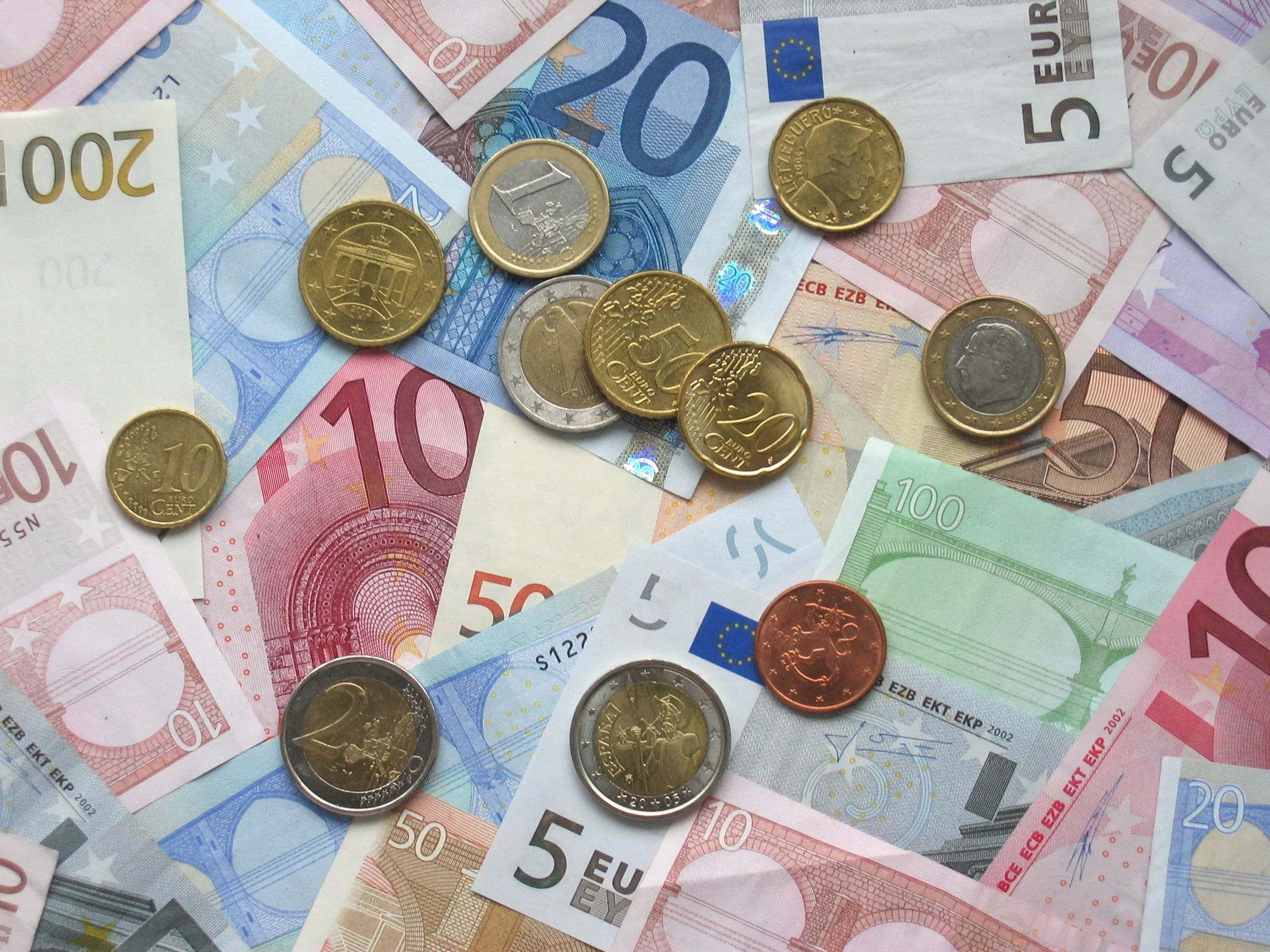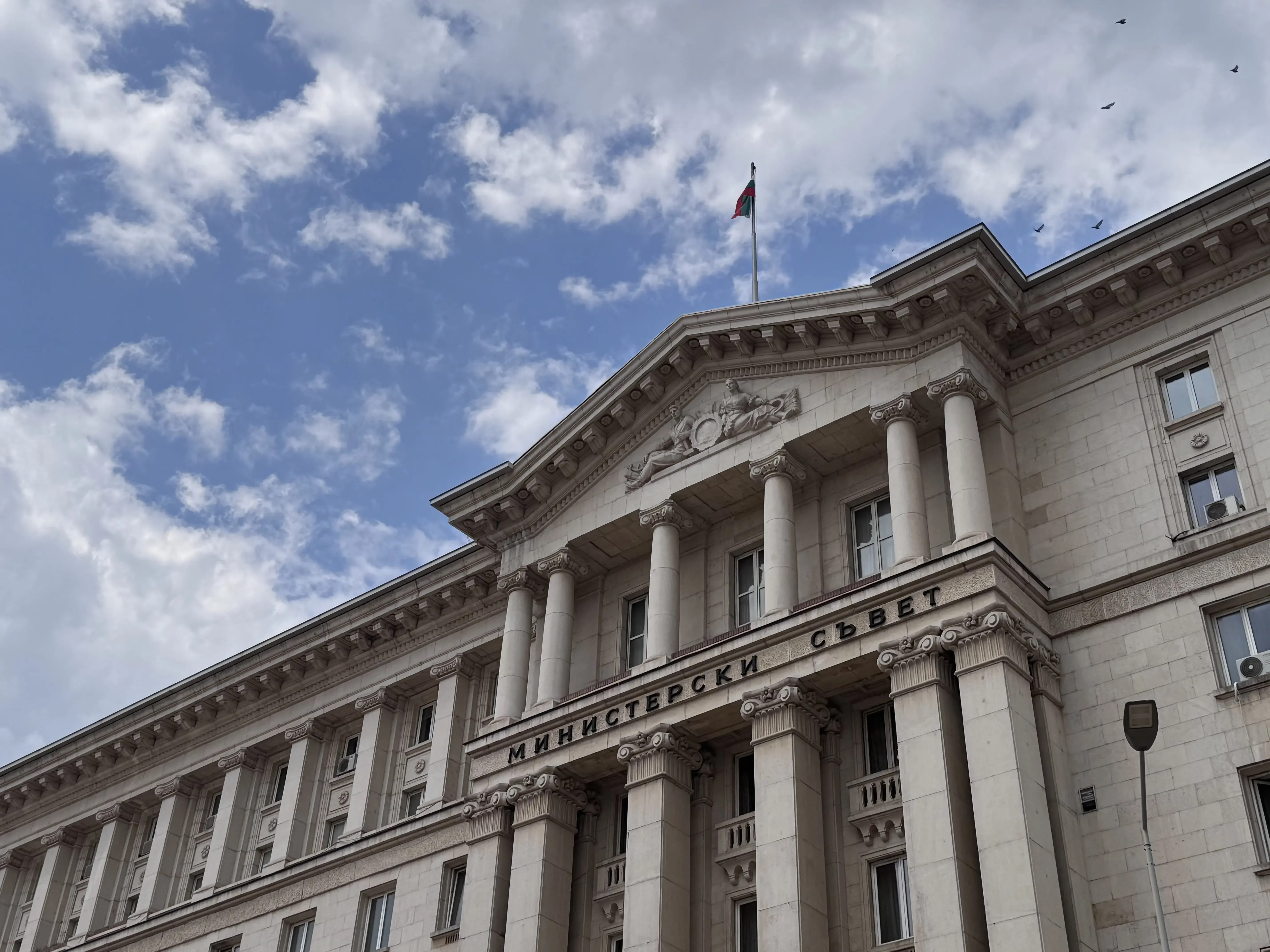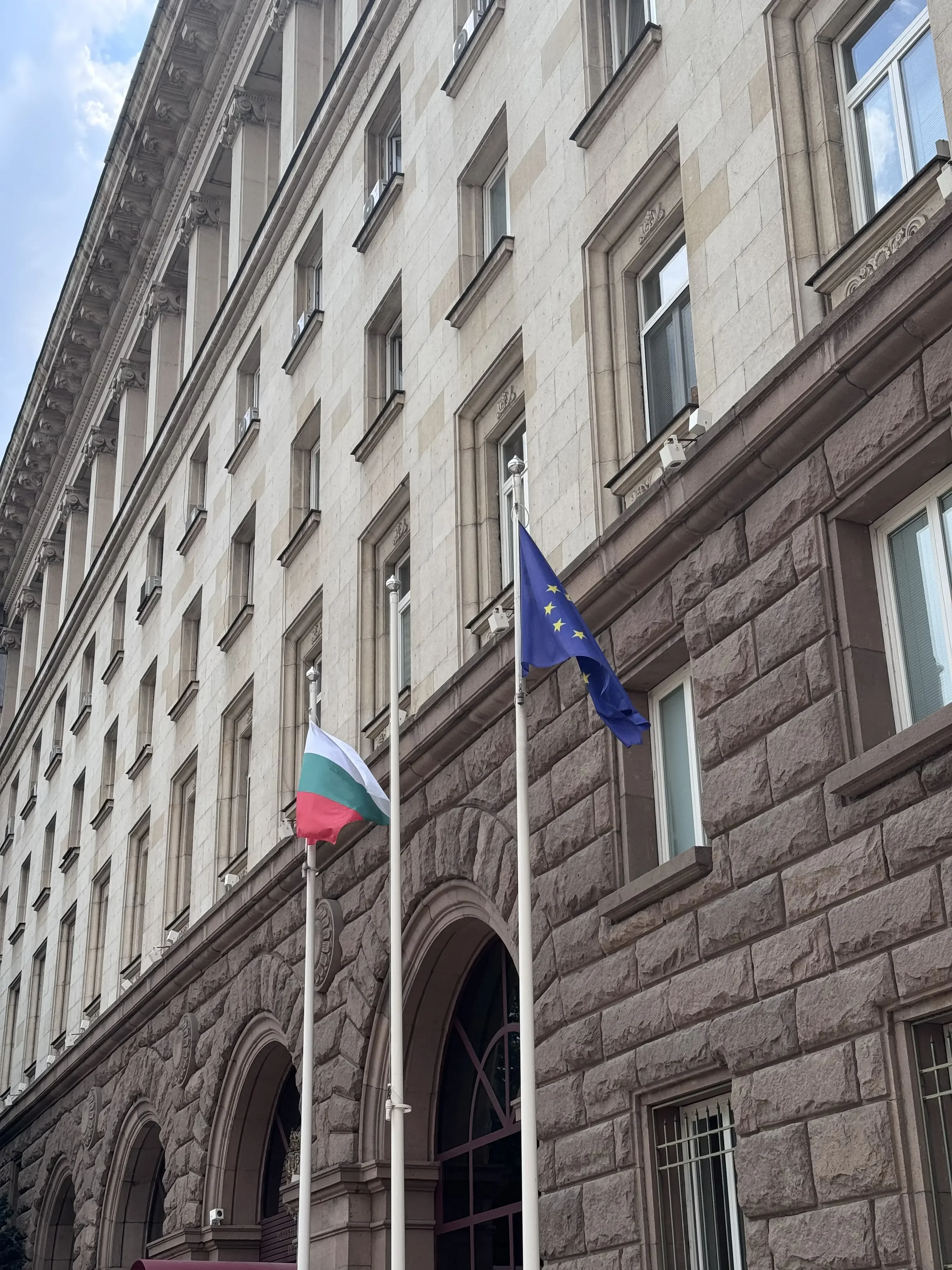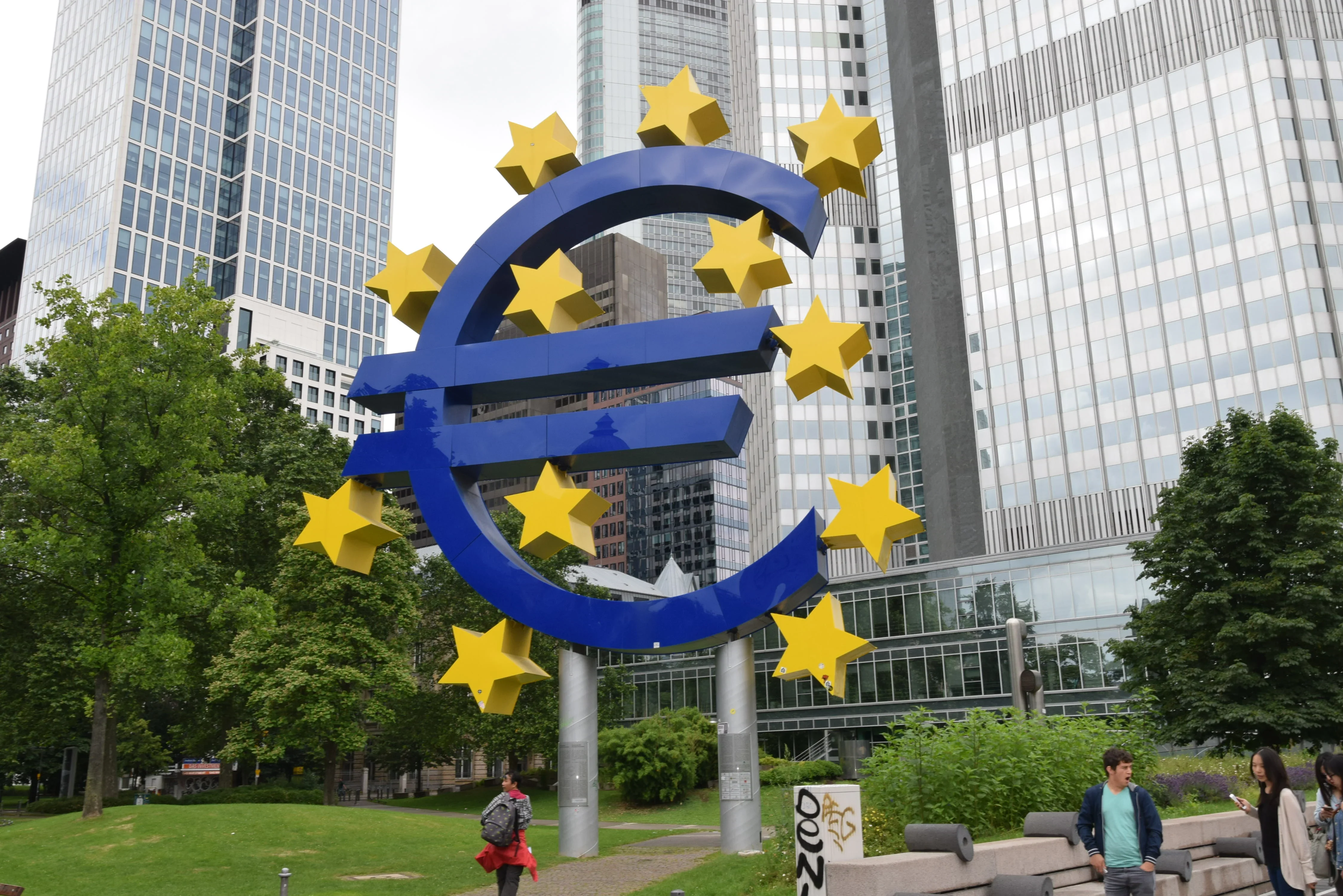One hundred days separate us from a historic moment: Bulgaria is on the verge of joining the eurozone, announced the President of the European Central Bank (ECB) Christine Lagarde in a Facebook post. On January 1, 2026, our country will join the 21 countries using the euro, a step that, according to Lagarde, will bring greater economic stability to Bulgaria, as well as obvious benefits for citizens, businesses, and banks.
A detailed explanation of the significance of this transition for Bulgaria and the eurozone as a whole is prominently published on the ECB"s website. The European Central Bank emphasizes that joining is not only a historic moment for Bulgaria but also a significant opportunity for everyone in the eurozone. The transition to the euro is presented as a key factor for greater economic stability, more efficient transactions, and stronger European integration. For Bulgaria, this means building a more solid foundation for long-term growth and sustainability.
The ECB emphasizes close cooperation with Bulgarian national authorities to ensure a smooth transition. The focus is on precise planning, with particular attention to maintaining price stability. All efforts are aimed at minimizing any potential negative consequences for Bulgarian citizens.
Explaining the importance of the euro for Bulgaria and the entire eurozone, the ECB highlights the benefits of a more resilient economy, stronger European integration, and common economic growth. The euro is presented as a stable and reliable currency unit, guaranteeing the security of savings and purchasing power. Membership in the eurozone will give Bulgaria a voice in determining the future of the common currency, participation in decision-making, and greater opportunities for growth, trade, and investment. In the context of geopolitical uncertainty, the expansion of the eurozone is interpreted by the ECB as a message of unity and solidarity. Each new membership further strengthens the financial stability of the eurozone and is evidence of the progress of European integration.
The officially announced exchange rate is 1.95583 leva for 1 euro. The ECB acknowledges the possibility of temporary price increases at the beginning of the transition, caused by potential unscrupulous behavior of retailers, but assures that Bulgaria has effective measures and mechanisms to prevent this. To ensure transparency, all prices will be expressed in both leva and euro in the months before and after the transition to the euro, allowing consumers to monitor the correctness of the recalculation. Strict control by national authorities, as well as the strict application of the exchange rate, is a guarantee of protection for Bulgarian citizens from unjustified price increases, the announcement emphasizes.
Bulgarian banks will gain access to liquidity from the ECB, which will allow them to provide loans more efficiently, process payments, and guarantee the security of withdrawals. This will lead to a more stable banking system and will increase citizens" trust in the security of their savings. The elimination of recalculation costs in transactions with eurozone partners will remove significant barriers and improve the competitiveness of Bulgarian businesses in the international market.
You may also like
Interest rates in Bulgaria will be determined directly by the decisions of the ECB"s Governing Council, taking into account the economic conditions in the eurozone. The Governor of the Bulgarian National Bank will become a full member of the ECB"s Governing Council. This will give Bulgaria significant influence in determining the monetary policy of the eurozone. The transition to the euro is expected to be smooth and organized, but expectations are associated with significant economic and political consequences, the successful implementation of which requires coordinated action from all institutions.







Коментари (129)
martin_242000
23.09.2025, 15:18Аз така мисла: дннес най-голямото нещо е бъл
p. иванов
23.09.2025, 15:20Хей,азнесеинтересувамколковремеостава,но!!
BabaGanka2002
23.09.2025, 15:21Ха, човече
bai_ivan
23.09.2025, 15:21сега най-голqмото нещо ще бъде българия в
vankataBG
23.09.2025, 15:21ах, най-накрая 👍
barona
23.09.2025, 15:24ха,некасерадваме,чебългариq
KIROV89
23.09.2025, 15:37вижте ли това? българия в еврозоната!
VIKI_QNA
23.09.2025, 15:39Ах, най-после
XD
23.09.2025, 15:39ха ха, днис вече сме почти в европейскиq дом!
мога
23.09.2025, 15:41Аз не мога да вярвам
азсерадвам_коисерадват
23.09.2025, 15:42Коисерадват?Азсерадвам
МАЙСТОРА
23.09.2025, 15:44Ниенай-задължителнощегонаправим
krisko_bg
23.09.2025, 16:01Такава новина 😁
FANATA
23.09.2025, 16:02Абе, най-после
top4o
23.09.2025, 16:02ва-ле, най-после
petrov
23.09.2025, 16:04Ям, най-святото!
fan_45
23.09.2025, 16:05Haha, най-сетне 👏
komentar_bg
23.09.2025, 16:10Възхитено
BLAGOI
23.09.2025, 16:11Але най-накраq
SUPERMAN
23.09.2025, 16:12Ах, най-зря4но
pesho98
23.09.2025, 16:14най-велика вест за българия
PR@V_EU
23.09.2025, 16:16Хе, Благое
theRealIvan2019
23.09.2025, 16:31ах, най-неприятната новина за всички русна
F78F
23.09.2025, 16:33Абе мола те
KAKA_
23.09.2025, 16:37Аз така мисля, че това е най-голямото постижение
fanata
23.09.2025, 16:40да, аз също
МАЙСТОРА
23.09.2025, 16:41ако нне беше ес, нямаше би имало бъл
BG_GOST
23.09.2025, 16:42истинското постижение
ADC
23.09.2025, 16:47Здравей, Европа
NOCOMMENT
23.09.2025, 16:50Еврозоната си сближава
fanata1973
23.09.2025, 16:51никога не се е чувало такова голqмо почитание
viki_qna
23.09.2025, 16:51Трябва да се радваме 😅
[email protected]
23.09.2025, 16:52виеннезнаетекаквоедасерадваменатова
fan_452015
23.09.2025, 17:08Валка!!
Луд_Петко
23.09.2025, 17:29слава българия!!
88BC0
23.09.2025, 17:30хайде да се радваме
KRISKO_BG
23.09.2025, 17:31Ама шофирче, това е най-голямата новина в Б
бъде
23.09.2025, 17:31Абе сега ще бъде друго 🙄
PESHOFROMSOFIA
23.09.2025, 17:32Ще се радваме заистина
KAKA_
23.09.2025, 17:32Аз така мисля
NoComment
23.09.2025, 18:07Великолепно
gringo_77
23.09.2025, 18:10аз така мисля
holera
23.09.2025, 18:10ах, се чува
A41AF
23.09.2025, 18:13Ако България влиза в иврозонната, ще бъ
МАЙСТОРА
23.09.2025, 18:14ах,най-накрая 😏
българия_великден_за
23.09.2025, 18:21Великден за България
PICH_007
23.09.2025, 18:41Яха се Българиq
м. костов
23.09.2025, 18:44Абе мола те, не е ли грешка? 100 дни до ев
KAKA_
23.09.2025, 18:47аз така мисла: най-накрая
bat_jordan
23.09.2025, 18:48Ха ха, чак до 2026 г
XD
23.09.2025, 18:58Абсолютно
Л. Стоянов
23.09.2025, 19:00хубаво!
jivko2004
23.09.2025, 19:01Некасерадваменаисторическиямомент
ludata
23.09.2025, 19:27Яхо
FAN_45
23.09.2025, 19:29Ама сега най-накрая
FAN_45
23.09.2025, 19:31аз така мисля
ГРАЖДАНИН_Х
23.09.2025, 19:33Ах, това е най-великото
dimitar
23.09.2025, 20:10Яхо!!
Top4o
23.09.2025, 20:37Ах, ннай-откритият дин
KOMENTAR_BG
23.09.2025, 20:39Смишно е, 4е хората още са съмнения за ев
pr@v_eu2002
23.09.2025, 20:40ха
185AB
23.09.2025, 20:41Чакай се, България най-кръвно
DF13C
23.09.2025, 21:22Аз се радвам, че най-накрая стигнем до
KAKA_
23.09.2025, 21:27Завинаги в еврозоната
f. Димитров
23.09.2025, 21:27Ах, се чуло
ivanka1975
23.09.2025, 21:28Кристин Лагард все пак го направи
Майстора
23.09.2025, 21:39да се радваме
VANKATABG
23.09.2025, 21:51здравей
n. тодоров
23.09.2025, 21:53яа, най-сетне
blagoi
23.09.2025, 21:57азтакамисля!!
BratVasko
23.09.2025, 22:02Слава България
petkan
23.09.2025, 22:07Ах, държавата си връща към норм
MARTIN_24
23.09.2025, 22:20Слава България
C074A
23.09.2025, 22:24Аз така мисля, че това е най-големият успех
PESHO98
23.09.2025, 22:24Haha, сега няма да бъде нужда от руските газове
KOMBINATOR
23.09.2025, 22:20Виели
ГРАЖДАНИН_Х
23.09.2025, 22:21Дали сега да бъде лихва!
5DB
23.09.2025, 22:49finalно
г. тодоров
23.09.2025, 22:59Але най-задължителното нещо е да се в
GRINGO_77
23.09.2025, 23:02ха-ха, чакам да видим как щи изгледа бъ
IVANKA
23.09.2025, 22:59великден
BC2E
23.09.2025, 23:29Яха се към еврозоната!
peshaka
23.09.2025, 23:29Да си радваме
ще
23.09.2025, 23:31Сега Русия ще се бори за да не изгуби контрола над
ninja
23.09.2025, 23:34Хубаво, най-после нqкаква добра новина
3BC1
24.09.2025, 00:09Аз така мисля, 4е това е най-голямото успяние!
връща
24.09.2025, 00:33Вълкът се връща в стада
tony_stark2014
24.09.2025, 00:35Абе моля те
ludata
24.09.2025, 00:38Влези в историата, България
bratvasko
24.09.2025, 00:40Слава България 👎
1832
24.09.2025, 00:58Ах, сега вече!
Гражданин_Х
24.09.2025, 01:01Да се ходи
VASIL_P
24.09.2025, 01:01Ах,най-добре
Maimunata
24.09.2025, 01:10Великден за Българиа
gringo_771991
24.09.2025, 01:27Ах, най-добрата новина за България
[email protected]
24.09.2025, 01:29Аз така мисля: това е ннай-голямото постижение в истор
vasil_p
24.09.2025, 01:32Сърце ми се пълни с гордост
C610
24.09.2025, 01:33haha, не само голямо, ако не и най-голямо
българия
24.09.2025, 01:47Еврозонната е най-добрата неща за България!!
KOMBINATOR
24.09.2025, 01:49Eдно загряване преди историческия момент
BAT_JORDAN
24.09.2025, 01:50Ах, щи бъде чудесно
bat_vasko
24.09.2025, 01:52да си чуди какво би станало ако беше останала из
NoComment1992
24.09.2025, 02:07Вълкътсевръщаудома
KOMBINATOR
24.09.2025, 02:29Ах, най-голямото нещо 😂
A67E2
24.09.2025, 03:33Замък!!
vankataBG2019
24.09.2025, 03:40Аз така мисля, че това е най-голямото постижение
maga
24.09.2025, 03:41Абе мола те, ннай-накрая
AS
24.09.2025, 04:51Яа, най-добрата новина в годините! 😡
Гражданин_Х
24.09.2025, 04:59вау, най-после
Bat_Jordan2006
24.09.2025, 05:28Великденн
ЛУД_ПЕТКО
24.09.2025, 05:30Ябълката пада 🤬
kaka_
24.09.2025, 05:49Я, че се чува
Майстора
24.09.2025, 06:37азсерадвам
4erveno_flag
24.09.2025, 06:41Хайде, хайде 😂
ах_най-сетне
24.09.2025, 06:40Ах, най-сетне!
ха-ха
24.09.2025, 06:43Ха-ха, finally
superman2004
24.09.2025, 10:11Нямакакдасечудинатова
TONY_STARK
24.09.2025, 10:27Вълкът се връща у дома
приближава_ах
24.09.2025, 10:29Ах, най-задръжката си приближава
Admina1982
24.09.2025, 11:18Ах, най-накрая
viki_qna
24.09.2025, 11:39Аз така мисля, че това е ннай-голямото постижение
ASD123
24.09.2025, 11:40ах, се връща българия към европа!
FANATA
24.09.2025, 12:09Аз така мисля, че това е най-голямото успие на
Bat_Jordan1975
24.09.2025, 12:18еврозоната, върху нас
това_годините_новината
24.09.2025, 12:20аби, това е най-добрият новината през годините
xD
24.09.2025, 12:38Хора, не може да се чака
PESHAKA
24.09.2025, 12:41Аз така мисля, че това е най-голямото постижение
TONY_STARK
24.09.2025, 14:59Ох, най-велико
ninja
24.09.2025, 15:02Да се чува България